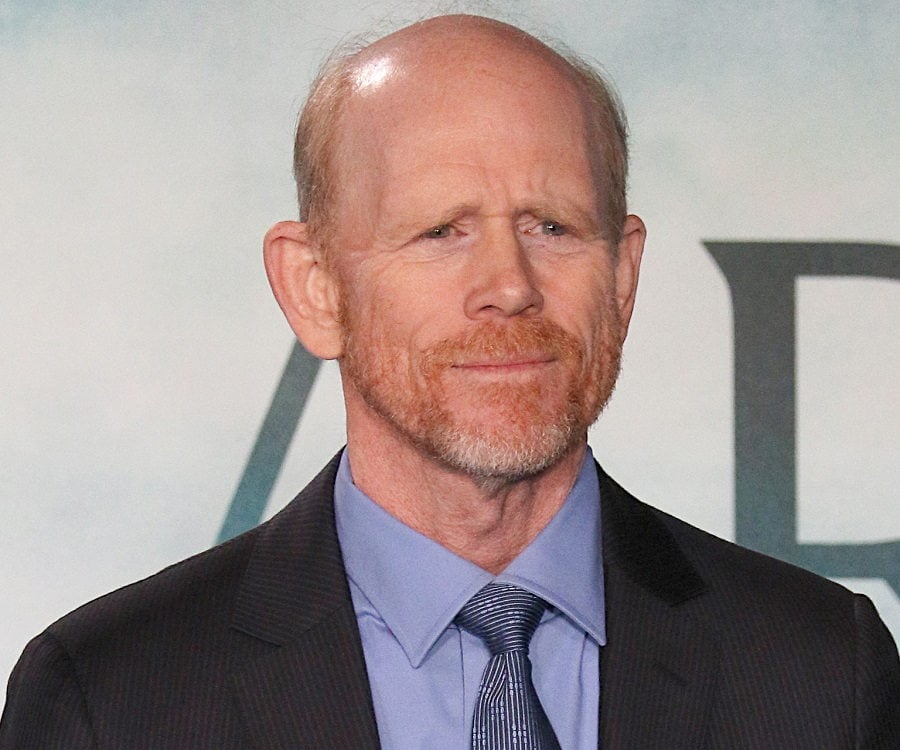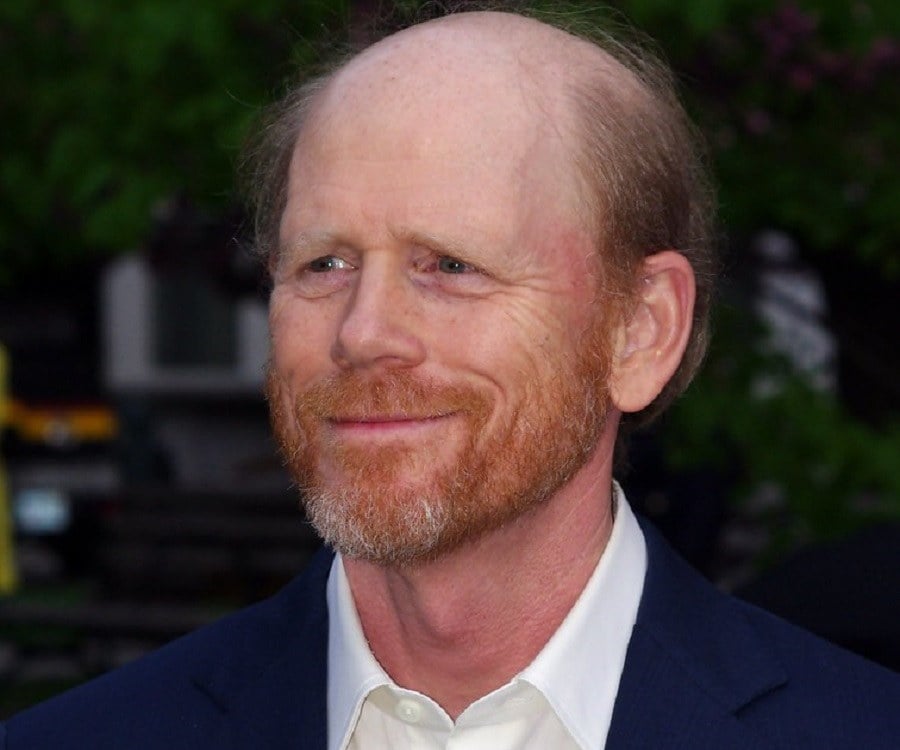Can a child actor truly ascend to the heights of Hollywood filmmaking? The life and career of Ron Howard emphatically answers, yes. His journey, marked by decades of versatility and an unwavering commitment to storytelling, offers a compelling narrative of success, innovation, and enduring artistry within the ever-evolving landscape of the film industry.
This exploration into Ron Howard's life unveils not just a biography, but a study in cinematic evolution. We will examine his formative years, the genesis of his acting career, and the pivotal transition into the world of directing. From his early successes as a child star to the critical acclaim he garnered as a director, this piece seeks to understand the driving forces behind Howard's enduring appeal and the profound impact he has had on the art of filmmaking. His story offers an intimate view into the creation of some of the most celebrated films of our time, and also, the challenges encountered in the long journey to success.
| Attribute | Details |
|---|---|
| Full Name | Ronald William Howard |
| Born | March 1, 1954, Duncan, Oklahoma, U.S. |
| Parents | Rance Howard and Jean Speegle Howard |
| Education | John Burroughs High School |
| Spouse | Cheryl Alley (m. 1975) |
| Children | Bryce Dallas Howard, Paige Howard, Jocelyn Howard, Reed Howard |
| Occupation | Actor, Director, Producer |
| Notable Roles (Acting) | Opie Taylor ("The Andy Griffith Show"), Richie Cunningham ("Happy Days"), Steve Boland ("American Graffiti") |
| Notable Films (Directing) | "Cocoon," "Apollo 13," "A Beautiful Mind," "The Da Vinci Code" |
| Awards | Academy Award for Best Director ("A Beautiful Mind"), Golden Globe Awards, BAFTA Awards |
| Reference | IMDb - Ron Howard |
Born in Duncan, Oklahoma, in 1954, Ron Howard's life began far from the glittering lights of Hollywood. His parents, Rance Howard, an actor and director, and Jean Speegle Howard, an actress, instilled in him a deep appreciation for the arts. Growing up in a creative environment, young Howard was immersed in the world of storytelling and performance from the very beginning. The familys eventual move to Hollywood provided an invaluable foundation for his burgeoning career, offering him direct access to the industry that would shape his future.
- Unveiling Conor Obersts Life Inside His Marriage Music
- Andrew Huberman His Actress Girlfriend Inside Their Lives
Howards early education included attending John Burroughs High School in Burbank, California. It was here that his acting skills were honed through participation in school plays. This early engagement in dramatic arts, coupled with his natural talent, laid the groundwork for his eventual discovery by casting directors. This discovery, at the tender age of six, led to his breakthrough role in the television series "The Andy Griffith Show." This defining role as Opie Taylor not only launched his acting career but also introduced him to a national audience, establishing him as a beloved child star.
The 1960s and 1970s marked a period of remarkable growth and achievement for Ron Howard as an actor. After the initial success of "The Andy Griffith Show," Howard secured another iconic role in the television series "Happy Days," which aired from 1974 to 1984. His portrayal of Richie Cunningham made him a household name, solidifying his status as a teen idol and earning him a massive and devoted fan following. The success of "Happy Days" proved instrumental in providing him with the necessary springboard for his later transition into directing and producing, thus enabling him to shape his creative vision from behind the camera.
Alongside his work in these iconic television series, Howard made appearances in various films and TV shows, displaying his versatility as a performer. His roles in "The Courtship of Eddie's Father" (1969), "American Graffiti" (1973), and "The Shootist" (1976), amongst other projects, highlighted his adaptability and contributed to his growing reputation as a respected actor capable of tackling a diverse range of roles.
- Unveiling Andrea Petkovic Career Partner Inspiration
- Kirsten Storms Weight Loss How She Did It Inspiring Transformation
In 1977, Ron Howard took his first step behind the camera, directing the television film "Grand Theft Auto." This directorial debut was met with positive reviews, and it highlighted his ability to craft engaging and compelling narratives. This transition from acting to directing represented a major turning point in his career, providing him with the opportunity to explore his creative vision from a new vantage point. The experience allowed him to delve into storytelling in a more comprehensive manner.
Following his successful debut, Howard directed several television projects, including episodes of both "The Andy Griffith Show" and "Happy Days." This experience proved to be invaluable, and he quickly gained recognition within the industry for his unique storytelling style and his meticulous attention to detail. This early success enabled him to hone his craft and to further develop his own signature approach to filmmaking.
The 1980s witnessed the ascendance of Ron Howard's directorial career, as he helmed a string of successful films that cemented his reputation as a skilled and imaginative filmmaker. These films showcased his capacity to create captivating stories across a variety of genres. "Cocoon" (1985), a science fiction fantasy, explored themes of aging, mortality, and community. In 1995, "Apollo 13" offered a gripping account of the ill-fated mission, demonstrating his skill in capturing the drama of real-life events.
One of his most acclaimed films, "A Beautiful Mind" (2001), offered an intimate portrayal of the life of John Nash, the brilliant mathematician who struggled with schizophrenia. This particular film earned him the Academy Award for Best Director, a testament to his exceptional ability to elicit nuanced performances and bring complex narratives to life. Further demonstrating his versatility, he directed "The Da Vinci Code" in 2006, adapting the best-selling novel into a visually stunning and thought-provoking film.
Ron Howard's contributions to cinema have garnered him a multitude of awards and accolades throughout his career. These honors not only reflect his personal achievements but also recognize his significant impact on the film industry. Receiving the Academy Award for Best Director in 2002 for "A Beautiful Mind" stands as a pinnacle achievement, acknowledging his exceptional skill and artistry. Multiple Golden Globe Awards and BAFTA Awards, both nominations and wins, further highlight his consistent quality and the respect he has earned from his peers.
Howards recognition extends beyond individual awards; he has also been honored for his overall contributions to filmmaking and his continuous support of various charitable organizations. This multifaceted recognition reflects not only his talent as a filmmaker but also his commitment to using his platform to contribute to society.
Ron Howard's personal life is a testament to his values, his sense of community, and his familys importance in his life. Despite the demands of a high-profile career, he has cultivated a private and fulfilling family life. In 1975, he married his college sweetheart, Cheryl Alley, and together they have raised four children. His strong family values are evident in his approach to both his professional and personal life. He often credits his family as a significant source of inspiration and motivation, providing a grounding force in his fast-paced career.
Beyond his significant work in film, Howard is actively involved in philanthropic endeavors. He is an advocate for a variety of causes, including education, the arts, and children's welfare. His involvement in numerous philanthropic efforts demonstrates his commitment to using his public platform to support meaningful initiatives, reflecting his dedication to giving back to the community and making a positive impact on the world.
Ron Howard's impact on the film industry is undeniable, leaving an indelible mark on the landscape of Hollywood. His ability to successfully blend storytelling with technical expertise has influenced generations of filmmakers and has set a new standard for excellence in the field. His films often delve into complex themes that are reflective of the human experience, allowing them to resonate deeply with audiences around the world. He has consistently shown an innate understanding of human nature, translating complex emotional states into visually compelling narratives.
Howard's influence extends beyond the realm of entertainment; he serves as an inspiration for aspiring filmmakers and storytellers alike. His success in the competitive world of cinema is a demonstration of the power of passion, dedication, and hard work. His legacy as a master storyteller and a creative visionary is firmly established and will continue to be celebrated for generations to come.
The enduring legacy of Ron Howard can be attributed to his consistent dedication to excellence, his versatility as both an actor and a director, and his remarkable ability to create compelling stories that resonate with audiences worldwide. From his early beginnings in Duncan, Oklahoma, to his achievements as an Academy Award-winning director, Howard's journey stands as a compelling testament to the transformative power of creativity, perseverance, and unwavering commitment to one's vision.
- Goojara Your Guide To Free Movie Streaming Is It Safe
- Paul Walker Rebecca Soteros A Love Story In Memoriam


